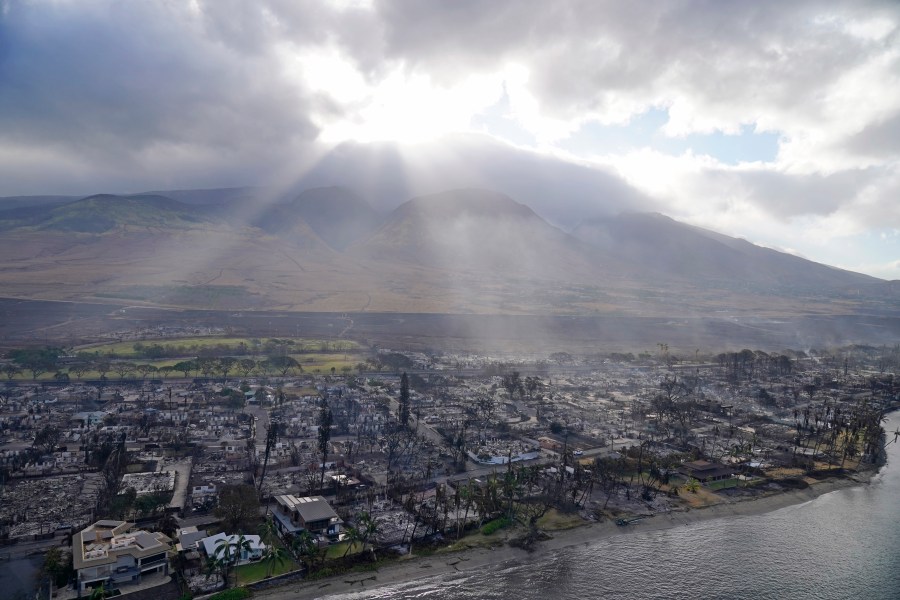HONOLULU (KHON2) — A five-year, $3.8 million study by a team of UH Manoa’s researchers will look at the government’s response and its impact to the residents affected by the Lahaina wildfires that occurred in August 2023.
The August wildfires killed 102 people and impacted about 14,000 residents — making it one of the deadliest wildfires in the U.S., UH reports.
The five-year study, funded by the National Institutes of Health will examine how the government impacted affected residents and how cultural insensitivities and related factors worsened health disparities for Lahaina’s Native Hawaiian, Pacific Islander, Filipino and Mexican communities.
The two-phase study called “Population Health and Health System Resiliency Following Maui’s Wildfire Disaster,” is being led by the dean of UH Manoa and chair of the Department of Native Hawaiian Health – UH Manoa.
“There is a general perception that everything related to the wildfire, from disaster preparedness to the response and recovery, to communications, could have been better. We want to see if the data support those perceptions,” Dean of UH Manoa Alex Ortega said. “The ultimate goal of the study is to strengthen the resiliency of not just our communities and families but also our governmental agencies and emergency healthcare systems so that we can respond and recover better from future disasters.”
The first phase of the study, which is underway as of June 15, will collect data to understand the physical and mental health impacts and all of the contributing factors. The second phase will focus on the barriers to health and other services before and after the fire and its relation to age, ethnicity, Medicaid eligibility and more.
“We’re really engaging community folks, stakeholders, those who are directly impacted by the fires who lost their homes, who lost their jobs, but also, we’re talking with frontline first responders,” Professor and Chair of the Department of Native Hawaiian Health Keawe’aimoku Kaholokula said. “We want to talk to healthcare leaders and government leaders. We want to see what has been the impact, what are the things they see as ways forward that we can learn from and then put that into a larger study to really look at it more comprehensively, scientifically.”
